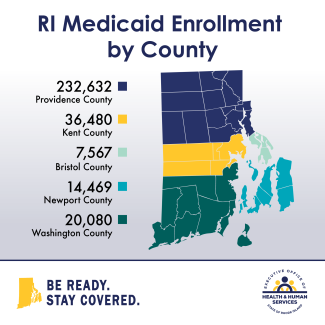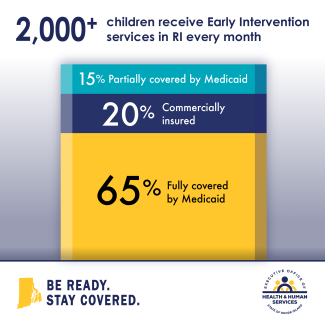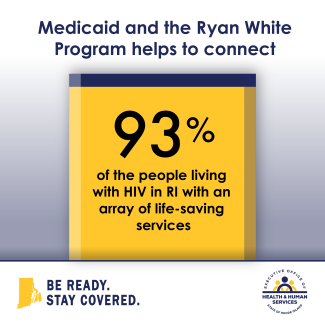RI Medicaid Matters
Medicaid provides health coverage to 1 in 3 Rhode Islanders. Who are enrollees? Your friends, neighbors, and coworkers. They’re small-business owners, students, grandparents, and more.
Help Rhode Island maintain its uninsured rate of 2.2 percent, one of the lowest in the country, and learn more about why Medicaid matters.
Medicaid is the foundation of Rhode Island’s health care system.
Medicaid contributes significantly to the state’s health care sector, supporting hospitals, health centers, home care, nursing homes, behavioral health programs, physicians, dentists, and more. By significantly reducing the number of uninsured Rhode Islanders, Medicaid decreases the cost of uncompensated care that can threaten a clinic or hospital’s sustainability and reduces the amount of medical debt in the State.
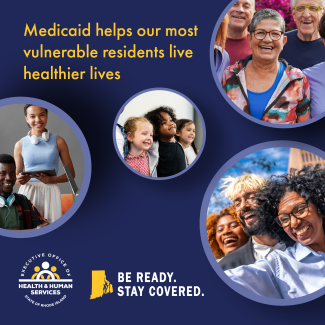
Medicaid helps our most vulnerable residents live healthier lives.
In Rhode Island, more than 310,000 children, low-income adults, individuals with disabilities, and older adults rely on Medicaid to connect to critical services. Medicaid provides access to annual wellness visits, life-saving medication, home and community-based services, long-term care, and early intervention services that help them be productive members in our communities. In addition, Medicaid funded 2.1 million non-emergency medical transportation trips to adult day centers, critical health appointments, and more in 2024.
Medicaid helps our youngest Rhode Islanders have a healthy start in life.
In Rhode Island, 177,389 households with children get health coverage through Medicaid. Children who have access to Medicaid have better health in adulthood, greater attendance during school, lower high school dropout rates, increased college attendance, and pay more in taxes as adults compared to adults who lacked health insurance as children.
Of the more than 2,000 Rhode Island children who receive Early Intervention services on average each month, the majority (80 percent) are covered by Medicaid. Research has demonstrated that interventions are likely to be more effective and less costly when provided earlier in life rather than later. In fact, one in three infants and toddlers who receive Early Intervention services don’t later present with a disability or require special education.
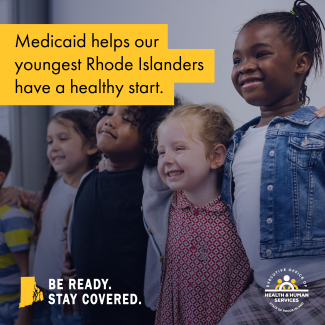
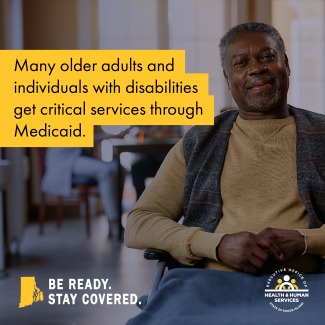
Many older adults and individuals with disabilities get critical services through Medicaid.
Rhode Island spends more than 54% of medical funds on services and supports for older adults, individuals with disabilities, and children with special health care needs. Through the years, an increasing proportion of this funding supports home and community-based services that keep people out of institutions.
Medicaid is the primary source of insurance coverage for people with HIV, and the primary payer for HIV care and treatment.
The Ryan White Program provides access to medications, outpatient health care services, oral health care, health insurance premium and cost-sharing assistance, housing services, medical nutrition therapy, food security, mental health counseling, case management, transportation to medical appointments, and emergency financial assistance for Rhode Islanders living with HIV.
